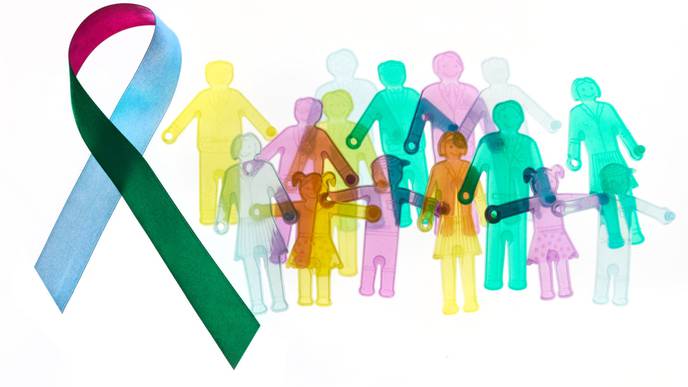ReachMD
Be part of the knowledge.™25 Million US Dollars for International Cancer Research

image: Martin Eilers has received $25 million in funding for his research. In the foreground: Employee Katrin Trunk, who will play a key role in the project.
Credit: Eilers/JMU; laterally extended with AI Firefly
The team is co-led by Martin Eilers, Chair of Biochemistry and Molecular Biology at the University of Würzburg (JMU). “Our research project is called KOODAC,” he explains. “That stands for ‘Knocking-Out Oncogenic Drivers and Curing Childhood Cancer’”. Our goal is to develop well-tolerated drugs that can target and eliminate cancer cells in children.” The current standard of care for childhood cancer is chemotherapy and radiation therapy, which, even when successful, are associated with severe side effects. “These therapies are often based on drugs that were developed decades ago. In the last 20 years, there has been little progress in curing childhood cancer.”
The research project is funded with up to 25 million U.S. dollars (approximately 23 million euros) by Cancer Grand Challenges, a global funding initiative co-founded by Cancer Research UK and the National Cancer Institute in the U.S. It supports scientific projects worldwide that address the biggest unmet needs in cancer research. The initiative will fund KOODAC’s team of researchers, patient advocates and industry partners for five years. “We have world-class researchers working together on an interdisciplinary basis,” says Eilers. “They are bright minds in structural biology, biochemistry, pediatric oncology and medical chemistry from the U.S., U.K., France, Austria and Germany.” Eilers will co-lead the team with Yaël Mossé, a U.S. physician from Children's Hospital of Philadelphia.
What KOODAC's research is all about
Background: Cancer is caused by mutations in the DNA of cells. These mutations can cause cells to produce proteins that are not normally present in them and drive cancer growth, called oncoproteins. Although currently available drugs can inhibit some of these oncoproteins, many oncoproteins are “undruggable”, meaning they cannot be inhibited by any currently available drug. And almost all oncoproteins that drive cancer growth in children fall into this category. KOODAC aims to solve this problem by using a groundbreaking new technology called “Target Protein Degradation”.
At the heart of this approach is a new generation of drugs known as “degraders”. These can specifically break down oncoproteins via a protein degradation system that is present in all cells. As a result, the mutated cancer cell dies. Unlike chemotherapy or radiation, degraders are not toxic and therefore have fewer side effects. They are also often able to cross the blood-brain barrier. This makes them a potential tool in the fight against brain tumors. Degraders can be given as pills or in liquid form.
Specifically, KOODAC is working to develop drugs against five common childhood cancers: Neuroblastoma, Medulloblastoma, Ewings Sarcoma and Rhabdomyosarcoma as well as a form of Hepatocellular Carcinoma. The team is funded by Cancer Research UK, Institut National Du Cancer and KiKa (Children Cancer Free Foundation) through Cancer Grand Challenges.
About Cancer Grand Challenges
Cancer Grand Challenges was founded in 2020 by two of the world's largest cancer research funders: Cancer Research UK and the National Cancer Institute in the U.S. The initiative supports research teams around the world who are tackling the biggest challenges in the fight against cancer. Grants of up to 25 million U.S. dollars are designed to enable researchers to transcend geographic and disciplinary boundaries. At the beginning of March 2024, the foundation announced its largest funding round to date: In addition to KOODAC, four other research projects were funded for a total of 125 million U.S. dollars (equivalent to more than 115 million euros).
Disclaimer: AAAS and EurekAlert! are not responsible for the accuracy of news releases posted to EurekAlert! by contributing institutions or for the use of any information through the EurekAlert system.
Facebook Comments